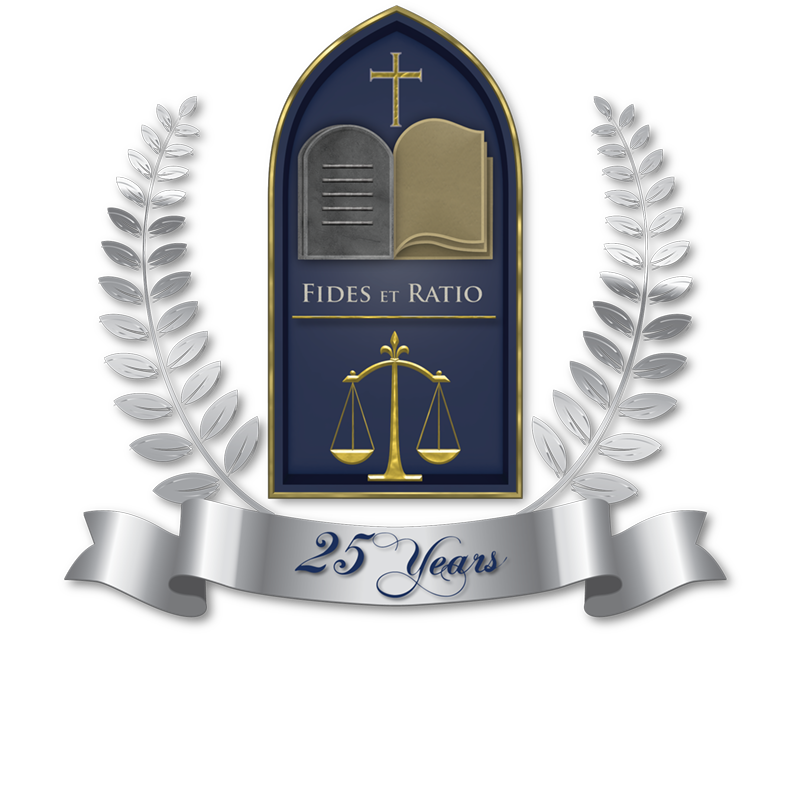(239) 687-5300
In summer 2014, ISIS waged a bloody blitz through Iraq’s Nineveh province, crucifying, beheading, raping, torturing, forcibly converting to Islam, and driving out every member of the region’s 2000-year-old Christian community. Christian girls, as young as three, were sold at ISIS sex slave markets in Mosul. Ancient churches were burned and ISIS attacked dozens of Christian towns in Syria. The beheading in 2015 of 21 Egyptian Copts on a Libyan beach, who died with the Lord’s Prayer on their lips, was videotaped by ISIS and became a searing, iconic symbol of this wave of persecution that threatens to eradicate Christianity in the Middle East. Many in the West, even Christians, remain unaware of the scale of this persecution, and even fewer know what can be done about it.
Inspired by Pope Francis’s denunciation of these acts as “genocide,” a group of Catholic legal scholars, writers, and theologians began work on The Persecution and Genocide of Christians in the Middle East. Its case studies focus on persecuted Christians, but its analysis equally applies to the other victims. In the United States, military and diplomatic responses are contemplated and sometimes undertaken. But what about the legal system? Are there things we can or should be trying? That question animates this book as it explores various facets of religious persecution, examining ISIS’s ideology and its relationship to Islam as practiced by most Muslims. Practical, relevant, and rich in ideas, this book addresses the most crucial religious freedom issue of our day. It is a primer for Christians, students of international human rights, and all concerned about religious persecution.

This 2017 Conference was published as a book featuring Essays by Ave Maria School of Law Professors and a member of the Board of Governors
“The Persecution and Genocide of Christians in the Middle East” (Angelico Press 2017) is a searing expose of this under-reported war on Christians waged by the Islamic State.
The book of thirteen essays was edited by Jane F. Adolphe, an Associate Professor of Law at Ave Maria School of Law in Naples, Florida, and an expert on international human rights with the Holy See’s Secretariat of State, Relations with States; along with Ronald J. Rychlak, a Professor of Law at the University of Mississippi and a member of the Ave Law Board of Governors.
“Using the Torture Act Against the Persecution of Christians” by Mark Healy Bonner, a professor at Ave Law, who specializes in international human rights, outlines how the Torture Act, signed by President Clinton in 1994, provides legal means for the United States to send offenders to prison, even when the torture occurs abroad. It was recently used successfully to convict and imprison a defendant in the U.S. for torturing people in Liberia. This act can be used against those who torture Christians in the Middle East. The Constitution authorizes Congress “to define and punish piracies and felonies committed on the high Seas and Offences against the Law of Nations.”
The Former Dean and President of Ave Maria School of Law, Kevin Cieply addresses, “International Criminal Law” in his essay, which details how the trials of Nazi war criminals after World War II laid the groundwork for the International Criminal Court based in The Hague, which hears crimes of genocide, crimes against humanity and war crimes. In the Middle East, the situation is critical as non-Muslims in Syria and Iraq are being slaughtered, sexually violated, displaced and tortured. Combating ISIS should be a priority of the International Criminal Court, Cieply writes.
Professor Jane Adolphe explores “Sexual Violence as a Tactic of Terror: The Plight of Christian Women and Girls” and why many victims are reluctant to speak out because of religious norms and stigma and fear they will be rejected by their communities. It offers a case study on the enslavement of Christian schoolgirls in Nigeria by Boko Haram, which has waged a relentless war against Christians.
Professor Kevin H. Govern of Ave Law, whose expertise is International and Comparative Law, lays out how international law to protect Christians is evolving in “International Humanitarian Law: Five Dynamics.” These are: cyber security and its role in censorship on freedom of religion and speech; the fragmentation of states, particularly in the Middle East; the impact of massive waves of migration on religious freedoms; global economic strains; and enduring human development challenges that are part of the environment shaping overall U.S. foreign policy as well as other nations around the globe.
Professor Rychlak, who serves on the Ave Law Board of Governors and the Advisory Board for the Catholic League for Religious and Civil Rights, points out how the International Criminal Court has failed in its efforts to find justice for Christians persecuted by ISIS in “Persecution of Christians in the Middle East: The Failed Promise of the International Criminal Court.” The ICC was founded when the Rome Statute of the International Criminal Court was established, but because neither Syria nor Iraq recognizes its authority it has not been able to combat the genocide of Christians by ISIS.



